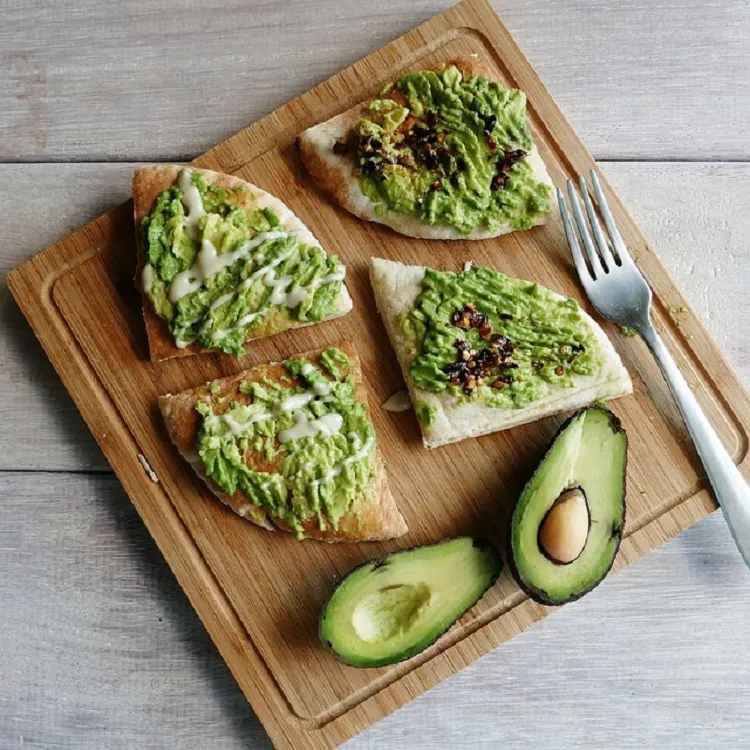Menopause is a natural phase in a woman’s life that brings about significant hormonal changes, which affects the body in different aspects, especially the skin. During this sensible period, your skin tends to become drier, thinner, and more prone to wrinkles. However, modern medicine science suggests some good measures to minimize the subsequences of these alterations and conserve your beauty and overall health. The good news is that most of these you can do easily alone, just changing a few of your eating habits. Stay on this page to know how, with a little bit of attention, you should be taking care for your skin during menopause, to keep it healthy and vibrant during this period of body transition.
What Foods Are Good for Menopausal Skin?
One of the key rules in taking care for your skin during menopause is a balanced and nutritious diet. Certain foods can provide essential nutrients that promote health for all your body parts. Here are some of them, which are particularly beneficial for your menopausal skin:
- Omega-3 fatty acids: Foods rich in omega-3 fatty acids, such as flaxseeds and walnuts, as well as fatty fish (salmon, mackerel, sardines) help nourish the skin from within. These healthy fats support the skin elasticity, reduce inflammation, and improve the overall texture.
- Colorful fruits and vegetables: Including a variety of colorful fruits and vegetables into your diet ensures a good intake of antioxidants. Berries, citrus fruits, leafy greens, and bell peppers are excellent sources of vitamins A, C, and E, which help protect the skin against oxidative stress and to maintain a youthful appearance.
- Healthy fats: Adding sources of healthy fats, such as avocados, olive oil, and nuts, in your eating habits enhances the skin’s moisture. They provide essential nutrients and aid in maintaining the skin’s natural barrier function.
- Soy products: Soy contains compounds called isoflavones, which have been found to improve skin elasticity and reduce the appearance of wrinkles. Consuming foods, based on this product, like tofu, tempeh, and soy milk can benefit your skin during menopause.
What Vitamin Helps Skin in Menopause?
Vitamins play a crucial role in taking care for your skin during menopause. Among them, vitamin C is particularly beneficial, because it is essential for collagen synthesis – the protein that provides structure and strength to the skin. The production of this protein naturally declines with age, promoting firmer and more resilient skin. As an antioxidant, vitamin C also helps protect the skin from free radicals, which can damage cells and accelerate the aging process. By neutralizing these harmful molecules, vitamin C supports overall skin health. To increase its intake during menopause, you can include the following food sources into your diet:
- Citrus fruits: Oranges, grapefruits, lemons, and limes are excellent sources of vitamin C. Enjoy these fruits as a snack or add them to your salads and smoothies.
- Berries: Strawberries, blueberries, and raspberries are not only delicious, but also rich in vitamin C. Take them with your breakfast or as a topping for yogurt and desserts.
- Leafy greens: Spinach, kale, and Swiss chard are packed with vitamin C, along with other beneficial nutrients. Add them into your salads, stir-fries, or smoothies.
Also read: How to Keep Your Hair Healthy During Menopause? 8 Tips to Maintain Your Mane
How Can I Increase My Collagen During Menopause?
Collagen is a key protein responsible for maintaining the skin’s elasticity and firmness. As estrogen levels decline during menopause, collagen production naturally decreases. However, several measures can help promote its synthesis and maintain skin health:
- Taking care for your skin during menopause with supplements: Certain supplements, such as collagen peptides or hydrolyzed collagen, can be taken to support collagen production. They provide the necessary amino acids and nutrients for its synthesis. But take care to consult with a healthcare professional before adding any supplements to your routine.
- Important topical treatments for your skin health: Look for skincare products that contain ingredients known to boost collagen production, such as retinol, peptides, and vitamin C. These topical treatments can help to improve the overall appearance of the skin.
- Taking care of your skin during menopause by protection: Limiting exposure to harmful environmental factors can help to preserve collagen levels. Protect your skin from excessive sunlight by using sunscreen daily and wearing protective clothing. Avoid smoking and reduce alcohol consumption, as these habits can accelerate collagen breakdown.
- Hydrate and moisturize your skin: This is essential for maintaining its elasticity. Use a moisturizer that suits your skin type and apply it daily. Additionally, drink an adequate amount of water to keep you hydrated from within.
- Maintaining healthy lifestyle habits: This style of life can positively impact collagen production. Engage in regular exercise, which promotes blood circulation and delivers nutrients to the skin. Get enough sleep to allow the skin to repair and regenerate. As excessive stress can contribute to premature aging, you should manage stress levels through relaxation techniques.







